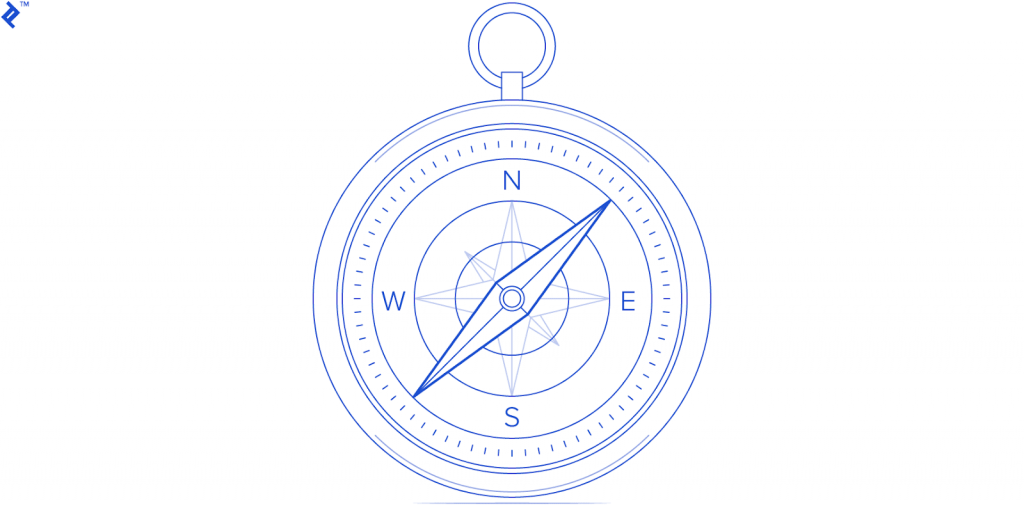
Agile Coach Vs Agile Consultant
Last updated on 10th Oct 2020, Artciles, Blog
It is common practice in the Agile Community for everyone to call themselves a “Coach”. We’ve even stratified coaches, Transformation Coach, Enterprise Coach, Team Coach. What is a Coach and how does it differ from a Consultant? How do you know which you need?
There are different definitions for Coach out there, for this article we’ll use the following:
Coach: Helps people become their best selves through inquiry and introspection. Draws on the knowledge and direction that is already there, without imparting their own expertise or knowledge.
What Is an Agile Coach?
Subscribe For Free Demo
Error: Contact form not found.
An Agile coach is a person who is responsible for creating and improving Agile processes within a team or a company. Agile coaches can either be employees or work as external contractors. Usually, a need for an Agile coach is identified when a company is transitioning from their existing working practices, such as Waterfall, into working with the Agile methodology principles.
Agile coaches mostly come from project management, product management, IT, or software development backgrounds. They usually have a lot of experience with different Agile methodologies, such as Scrum, Kanban, and Scaled Agile Framework (SAFe). They are usually proficient in coaching and mentoring and are able to guide and help people to figure out the right solutions for their challenges.
Why Do You Need an Agile Coach?

Agile is easy to understand, but hard to master, resulting in many leaders running into problems when making the switch. Most of these problems come about due to unrealistic expectations of how easy it is to implement Agile within a team, department, or the whole company.
For example, the appeal of Scrum is huge because it seemingly offers a one-size-fits-all solution, which is easy to implement. However, every situation is different and many project managers find themselves in situations where they have implemented all the right Agile processes, yet there is a feeling that something is not quite working. Alternatively, sometimes Agile seems to work in one business unit, but not in another.
This is the situation when an Agile coach becomes a valuable addition to the team. It is his job to figure out the reasons why Agile is not delivering the expected results and what steps need to be taken to remedy the situation.
Types of Agile Coaches
There are many different role names that are in use, which can sometimes be confusing. Agile coaches are sometimes called: Agile facilitators, Scrum masters, Scrum coaches, iteration managers, Kanban coaches, or enterprise Agile coaches. The easiest way to think about Agile coaching is through the lens of who is being coached by whom. The Agile Coaching Institute offers three certification levels for Agile coaching, which align with three most common scenarios.

Some roles and responsibilities of an Agile Coach
- Offer new tools and techniques to promote a healthy group dynamic.
- Make sure that teams work together effectively. For example, implementation of Scaled Agile Framework (SAFe) that requires active coordination at a team and enterprise level.
- Make the individual employees as well as the various teams aware of their strengths and weaknesses to develop a collective Agile mindset.
As the team matures through the leadership of the Scrum Master, he or she may become ready to take on more of a leadership role for the organization. This may pave the journey of a Scrum Master to become an Agile Coach, providing mentoring and coaching for new Scrum Masters, or other roles in the team.
Consultant: Brings specific expertise and knowledge, tailors strategies and solutions based on expertise and experience.
To be fair, the Agile Community has bundled these both into one role. There are a few very dynamic individuals out there that can play both roles. Most can’t. Here are some guidelines on sorting through Coaches.
I view the Consultant as “building the engine” and the Coach as “gas and oil to make it run.” (or electricity if you have a Tesla)
Key Characteristic of Agile Consultant
However agile consultant is considered to be more knowledgeable than an agile coach, some key characteristic of a consultant is:
- They generally have a process where they ask the team series of questions which in turn are meant to turn the teams focus on identifying key problems and issues
- He keeps reminding the team of important problems and they must not drift away from these problems
- One key trait is consultant always needs to keep a broader picture in mind even if the team fails to do so, because when a key issue arises a decision can be taken keeping the broader perspective in mind
- He guides the team to solve issues that come their way
Agile Consultant Development Practises
The consultant needs to undertake a lot of work to develop successful agile practises at a firm. Each firm is unique and has hired the consultant for a specific problem that they face. There could be times where the consultant is faced with a similar type of problem at various firms, in that case, he has an opportunity to develop practise he employed at previous firms.
However, there could also be times when he is faced with a problem that he has not experienced or handled before. This would be a good learning experience for him but he needs to tap into his past expertise to solve this issue.
However there are certain development practises that consultant can use, they are
- Educate colleges- The first important step is to make sure all developers understand what is agile and how to use it. Employees at all levels must be educated, from senior members to juniors. And providing them with the necessary knowledge and tools to work on their own
- Mentor team- A consultant role is to make sure developers understand Agile frameworks, provide employees with frequent feedback so that they work on their improvement. Providing support to employees, coordinating across teams within the organization and overall making sure there is a good understanding of agile frameworks
- Implementing Agile- After spending considerable time in training developers and finding solutions to their problems, consultant being hired on a temporary basis will leave the organization; before he leaves he must make sure that developers are in a position to implement agile frameworks on any future development they do. Hiring a consultant can prove to be expensive for the company.
Agile Consulting Strategies
Each problem a consultant solves for a company working on agile can be used as consulting strategy for the next firm he works for, that is, he will be able to apply solutions he learned at one firm to another if the firm is facing the same set of problems. And over a period of time consultant will have developed very deep expertise in agile frameworks.
A consultant can use this expertise to design strategies at other firms, the first step is adoption at every stage, that is, all concerned teams come on board and become familiar with agile framework and principles.
Educating employees and building a culture where employees learn to use agile frameworks and practise it on their own. And lastly continually offering strategies for improvement.
- Your organization doesn’t know what to do. Either you don’t know where to start, or you don’t know how to break through a plateau. In this case, you need specific knowledge and experience to help you build a strategy and plot a course.
- Your organization is not bought into the change. If you need someone to sell executives on the need for change, to show ROI projections and evangelize, you need a consultant. Many coaches will not work in an organization that is not bought in, consultants need to pave the way.
You need a Coach when:
- The culture change is hard. Your organization has old patterns to break and emotional blockers to knock down. Coaches will work with people individually and as a group to overcome emotional barriers.
- You’re asking people to change their mindset. When people shift into empowerment and self-organization, the change needs ongoing coaching in order to break the old habits. A single training won’t suffice, you need someone challenging people to work in new ways.
- Your organization has faith in the strategy. Coaching is really difficult to measure. Unless your organization believes that getting people aligned and empowered is the right thing to do, you will have a really hard time justifying coaches. Also, it’s really hard to coach if the organization undermines the coaches.
Are you looking training with Right Jobs?
Contact Us- Agile Methodologies and Frameworks- Kanban and Lean Management Tutorial
- Agile Interview Questions and Answers
- Continuous Improvement – Agile Value Stream Mapping
- Agile Certifications
- Agile Scrum Master Interview Questions and Answers
Related Articles
Popular Courses
- PMP Certification Training
14376 Learners - CAPM Certification Training
14376 Learners - Jira Training
13265 Learners
- What is Dimension Reduction? | Know the techniques
- Difference between Data Lake vs Data Warehouse: A Complete Guide For Beginners with Best Practices
- What is Dimension Reduction? | Know the techniques
- What does the Yield keyword do and How to use Yield in python ? [ OverView ]
- Agile Sprint Planning | Everything You Need to Know

